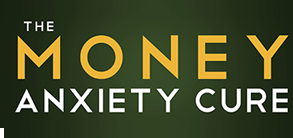Written by Cathy Cassata for Healthline.com and posted on July 18, 2017
Chances are, stress and anxiety about money are a part of your daily life. From rent and mortgage payments to health expenses and childcare costs, the list is endless.
You’re definitely not alone in this plight. According to the American Psychological Association, about 80 percent of millennial Americans (and 75 percent of Americans, total) have some kind of stress or anxiety related to money.
That’s despite the fact that, above a certain paygrade, there’s no evidence that money can make you any happier. A major survey done by Princeton University found that while making below $75,000 a year can cause unhappiness, once you’re at that income level, increases in wealth have no impact on your emotional wellbeing.
“As long as we feel like we’re doing average and have basic needs met, such as food and shelter, there is no correlation between money and happiness,” says Brad Klontz, PsyD, founder of the Financial Psychology Institute and an economics and finance professor at Creighton University in Omaha, Nebraska.
Then why does money stress us out? Klontz says the reasons are biological and psychological, with the root cause being the fact that we compare our financial status to others.
“We compare the degree to which we’re financially well-off to others around us. That’s why you see extremely poor people in other countries report more subjective well-being and better sense of happiness,” explains Klontz. “And people who have a hundred times more, say in this country, who feel miserable and poor because they are comparing themselves to those around them who are wealthier.”
Koorosh Ostowari, author of “The Money Anxiety Cure,” calls this money anxiety disorder. Believing that making a certain amount of money will make you feel safe is true to some point, he says, and whether those needs are imagined or not, they send signals to the body that there’s some kind of danger.
“The fear of danger or that you won’t survive or make it is real,” says Ostowari, adding that the stress can have physical responses not unlike an animal’s when they’re in defense mode or on the hunt. “Restriction in the throat, hunched shoulders, increased heartrate, pain in the chest — the body is ready for the fight-or-flight response,” he explains.
Some of the anxiety related to money is good, notes Ostowari. “The good stress mobilizes you, and warns you to watch out, and not to overextend yourself or borrow too much or be too generous,” he explains. “Then there’s the superficial response that makes you say, ‘I’m not enough and I’m lacking,’ which affects your self-worth.”
The good news? There are healthy ways to approach money concerns. Here are a few to consider.
